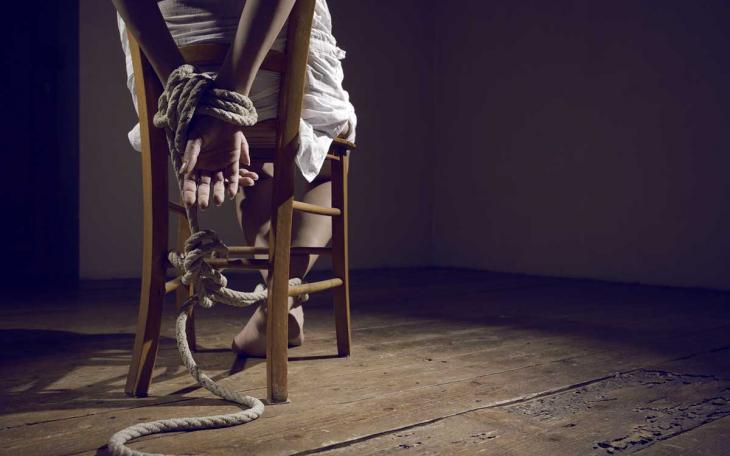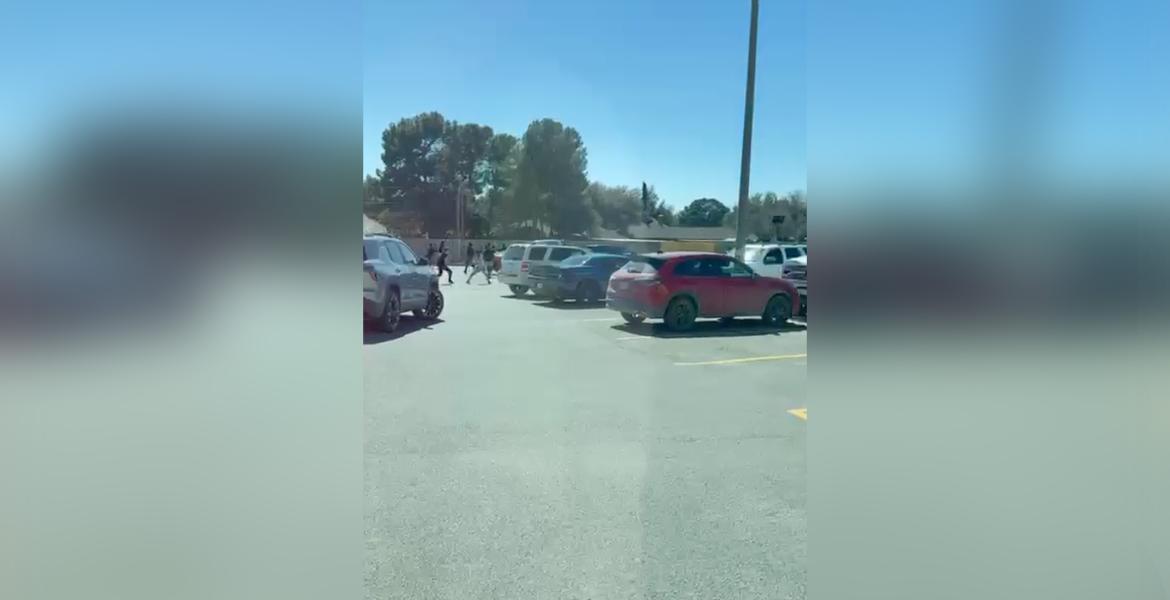NEW ORLEANS, LA — Former San Angelo Police Chief Tim Vasquez received good news while sitting in federal prison last week. The justices on the US 5th Circuit Court of Appeals in New Orleans have agreed to hear oral arguments in his plight to overturn his conviction. Vasquez was convicted of one count of federal bribery and three counts of honest services mail fraud on March 25, 2022. He was sentenced to 15.5 years in federal prison on August 8, 2022.
Since his sentencing, Vasquez has languished in a medium security federal lockup in Jesup, Georgia where friends informed us he is leading a Bible study with fellow inmates while he works on his appeal with his defense attorney, Franklyn Mickelsen of Dallas. His scheduled date of release, should his appeal be unsuccessful, is February 8, 2035.
Mickelsen discovered several issues with Vasquez’s conviction. He mentioned that the U.S. Attorney Jeff Haag failed to introduce the jury to the man who bribed him, Richard Wells, the multi-millionaire public safety radio dealer from San Antonio who gave Vasquez $178,000 so Vasquez would convince the City Council of San Angelo to spend $5.7 million upgrading Wells’ company’s installation of Harris radios in 2014.
“This case notably lacks the testimony of any co-conspirator or any emails, texts, or any other documentation pertaining to the intentions of Daily and Wells and Mr. Vasquez,” Mickelsen wrote in a counter argument to the U.S. Attorney. Indeed, if there is a proven bribery, it requires two actors to commit the crime. What is more, since Vasquez’s conviction and sentencing, Richard Wells of Dailey and Wells has not been charged with anything. During his closing arguments, Prosecutor Haag lamented about Mr. Wells’ modus operandi of bribing a key agent working in the government entity with which is company does business. Then, when the need arises, Wells taps his insider to help him obtain the contract. While San Angelo’s total spend with Wells was around $12 million over eight years, Dailey and Wells has public safety radio contracts elsewhere worth ten or 20 times more than tiny San Angelo’s.
If Haag really believed what he argued to the jury — that Richard Wells has a network of “kept men” stationed in counties and municipalities across the country — why hasn’t he attempted to take down Mr. Wells? Prior to his trial, Vasquez said that he was offered a plea deal if he would turn state’s evidence against Wells. Vasquez said he declined because he did not believe the $178,000 in payments over 10 years were bribes. The money was paid to hire Vasquez’s band, Funky Munky, for 20 performances at Daily and Wells corporate functions (in his brief, Vasquez’s defense claimed $84,000 paid for 10 performances from 2007 until 2015, and another $50,000 for 10 more performances well after Vasquez was no longer police chief).
The FBI and U.S. Attorney’s lack of interest in Mr. Wells isn’t the basis of Vasquez’s appeal, however. Just after Vasquez’s parents mortgaged their home and sold everything Vasquez owned to pay for a new defense attorney at the end of 2022, a separate federal bribery case involving the City Council of Dallas was making its way to the U.S. 5th Circuit. The justices ruled in USA v. Hamilton that a federal bribery conviction requires a specific and identifiable quid pro quo, not just a payment or series of payments to build solely a reservoir of goodwill in hope that the target of the payments makes official decisions in favor of the payor.
In Hamilton, the feds argued that real estate developer Ruel Hamilton contributed money to a non-profit organization supported by one Dallas city council candidate, some of which was funneled back to her for her personal use. She unsuccessfully advocated on his behalf before a state agency that could have awarded tax credits to one of Hamilton’s proposed developments. Hamilton also gave money for the personal use of another councilman who he hoped could help get a measure on the ballot to increase African American voter turnout and improve the prospects of other candidates that Mr. Hamilton supported.
The 5th U.S. Circuit Court of Appeals reversed Hamilton’s conviction concluding that Mr. Hamilton received nothing “tangible” in return for the payments he made to the candidates and that the jury instructions, which permitted him to be convicted for receiving a only a gratuity, were erroneous.
In Vasquez’s case, the USA argued that the bribes to Vasquez started in 2007 (when Wells first hired the police chief’s band). However, by the time that money was paid in 2007, Vasquez testified on the stand that he did not recall how he voted on a special City of San Angelo public safety committee and that he recalled the committee recommended Well’s competitor that would install a Motorola public safety radio system. Vasquez said he believed the city manager at the time (in 2007) overruled the committee’s recommendation and selected the Dailey and Wells Harris radio solution instead. There was no evidence presented at trial to dispute Vasquez’s testimony. Here is the article about Vasquez’s testimony.
If the 2007 deal was done without much help from Vasquez, what remained of Vasquez’s value to Wells was the 2015 Harris radio upgrade of $5.7 million. The circumstances leading up and after to the 2015 radio deal were the primary facts the prosecution presented during the trial. Mickelsen argued in his brief that in 2007, Wells had no idea there would be a Harris P25 radio upgrade opportunity seven years into the future. In addition, Vasquez faced two contentious city-wide elections between 2007 and 2014 and Vasquez could have lost (he didn’t). In 2007, and before the P25 upgrade was on the table, for what was Wells ultimately paying Vasquez, Mickelsen asked?
“Daily and Wells received nothing ‘tangible’ in return for payments it began to make to Mr. Vasquez seven years before he took any official action in their favor, shows that the evidence to sustain his conviction is insufficient for the federal bribery count and the honest services fraud counts,” Mickelsen argued.
The U.S. Attorney viewed the facts during the trial differently. In the government brief countering Vasquez, the USA argued that the jury saw the constant stream of benefits (roughly $178,000) from Dailey and Wells to Vasquez (the quid), and the jury saw evidence that Vasquez did Dailey and Wells’s bidding whenever a specific business opportunity arose regarding San Angelo’s public safety radio system, to include ensuring that Dailey & Wells obtained the $5.7 modification contract in 2015 (the quo). Curiously, the USA brief spent considerable time discussing the 2007 City radio committee, claiming committeeman Vasquez was influential for choosing Dailey and Wells even in 2007, when our recollection of the trial was that what little information about that timeframe was presented it was disputed and generally unproven. The circumstances of the original Dailey and Wells contract in 2007 was not a focus of the prosecution’s presentation during the trial.
As the 5th U.S. Circuit Court of Appeals ruled in Hamilton, the Vasquez conviction lacked a specific quid pro quo to qualify as a federal bribery charge, Mickelsen argued. The honest services mail fraud charges were linked to the bribery, too. Digging deeper, Mickelsen added that the jury charge confused the definition of bribery with the definition of a gratuity. A gratuity is not bribery in federal statutes, Mickelsen argued.
The Vasquez appeal continued, “In this case, it is not at all clear that Mr. Vasquez’s actions supporting the Daily and Wells contract are in fact linked to the gifts and payments made by the city vendor for his band’s performance[s]. There is no direct evidence such as emails, text messages, or the coconspirator testimony stating that such a link existed. Admittedly, a jury may nevertheless infer that such a link existed. A link by itself only establishes a gratuity, however, not quid pro quo bribery.”
In summary, according to Mickelsen, there were no co-conspirator facts presented at trial and the payments were not linked to a specific action Vasquez provided Mr. Wells and his company. Therefore, by federal definition, as previously ruled in Hamilton and a second case, United States v. Sun-Diamond Growers of Cal. (1999), gratuities are not bribes and Vasquez was incorrectly convicted. Mickelsen asked the appellate court to dismiss the conviction or overturn it and send Vasquez back to federal district court for a new trial.
Last week, the 5th U.S. Circuit Court of Appeals thought Vasquez’s appeal to be good enough to hold oral arguments. Rarely do appeals rise to the occasion of oral arguments. In 2022, the US 5th Circuit considered 6,060 cases. Out of those cases, it only heard 831 oral arguments.
Oral arguments are scheduled for the week of November 6, 2023. Tim Vasquez has been incarcerated since March 25, 2022.
Subscribe to the LIVE! Daily
Required






Comments
It's regular practice for the convicts around here to thump their bibles in prison as well. Nothing to see here except a dirty cop who got busted. Hope he stays right where he's at.
- Log in or register to post comments
PermalinkListed By: Rita Repulsa
So the same partisan FBI that hounded #45 and doesn't know when Chinese Stasi set up shop in a metro near you just, like, forgot to pursue charges against the person that lured Funky Monkey into the slammer? Sounds about right...
What can we all do but snort another line with Hunter on our way to get our jabs between HRT treatments?
- Log in or register to post comments
PermalinkPost a comment to this article here: